Therèse Klompenhouwer made history this summer by becoming the first female World Games Champion in Carom 3-cushion. In an exclusive interview, she shares her journey from overcoming an injury and intense training to handling pressure on the international stage. She reflects on the emotions of victory, the challenges of the season, and the inspiration she hopes to bring to the next generation of players.
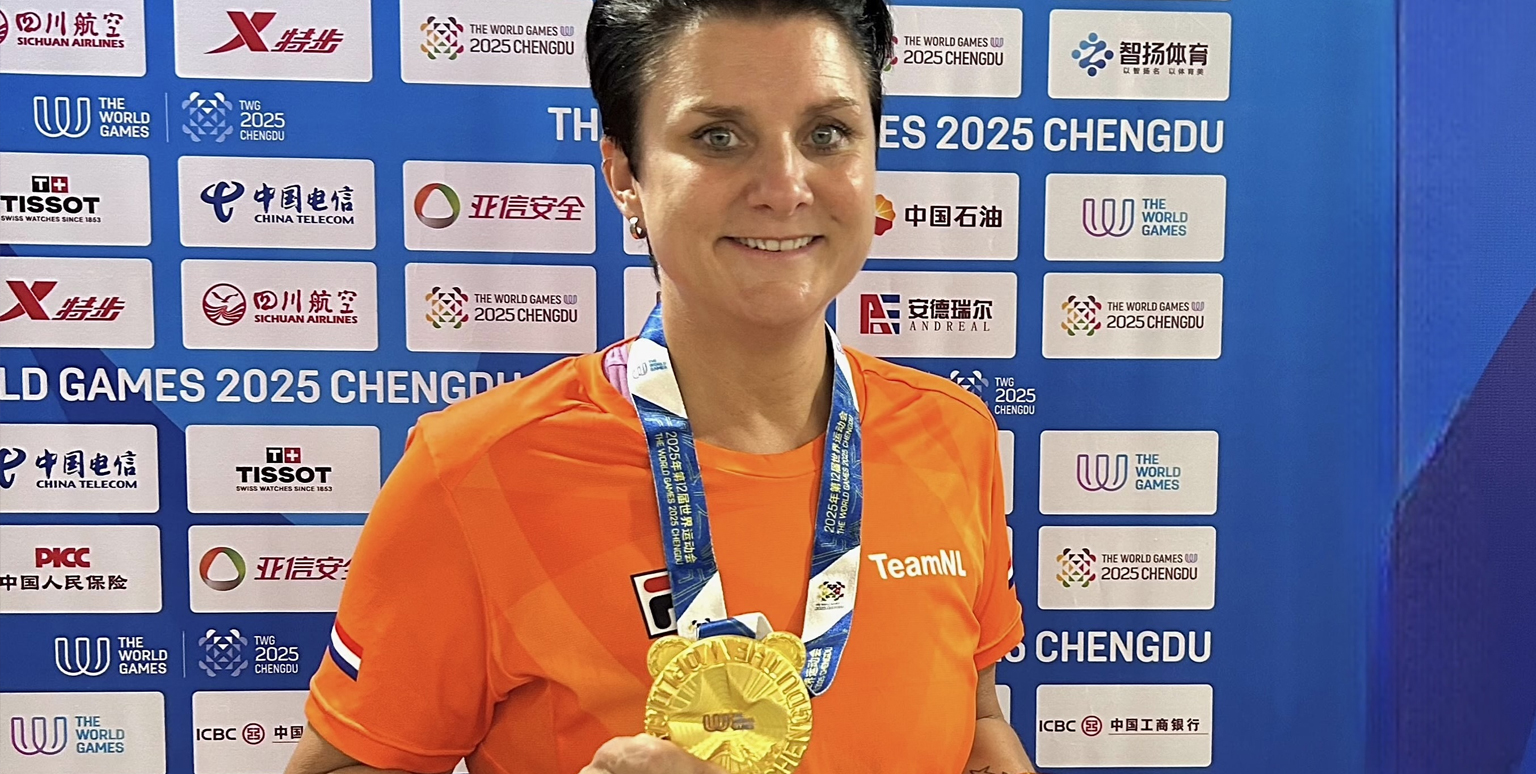
A Dream Come True: The First Female World Games Champion in Carom 3-Cushion
How did it feel to be the Gold Medalist at the first-ever edition of Women’s Carom 3-cushion at the World Games?
It really felt amazing. The way I played, the whole atmosphere over there, how everything was organized. It was really nice. I really enjoyed it. I enjoyed the tournament but I also enjoyed being there. I was really focused to win. And when you can make it happen and be the first to claim the title, that’s an amazing feeling. I am now the first World Games female winner of Carom 3-cushion. Such a great feeling.
Does it mean a lot for you to be the first woman of your sport to claim this title?
Yes of course. Because it will be in the books. When I was younger, I never thought I would become a World Champion in Carom 3-cushion. But when you become a World Champion and that you see Dick Jaspers and all the other guys playing at the World Games, you want to play there too. In our sport, it’s the highest prize you can win because the World Games are like the alternatives to the Olympic Games. I won so many things already in my life. And this was the only prize missing in my house. So yes, of course, I am happy to be the first.
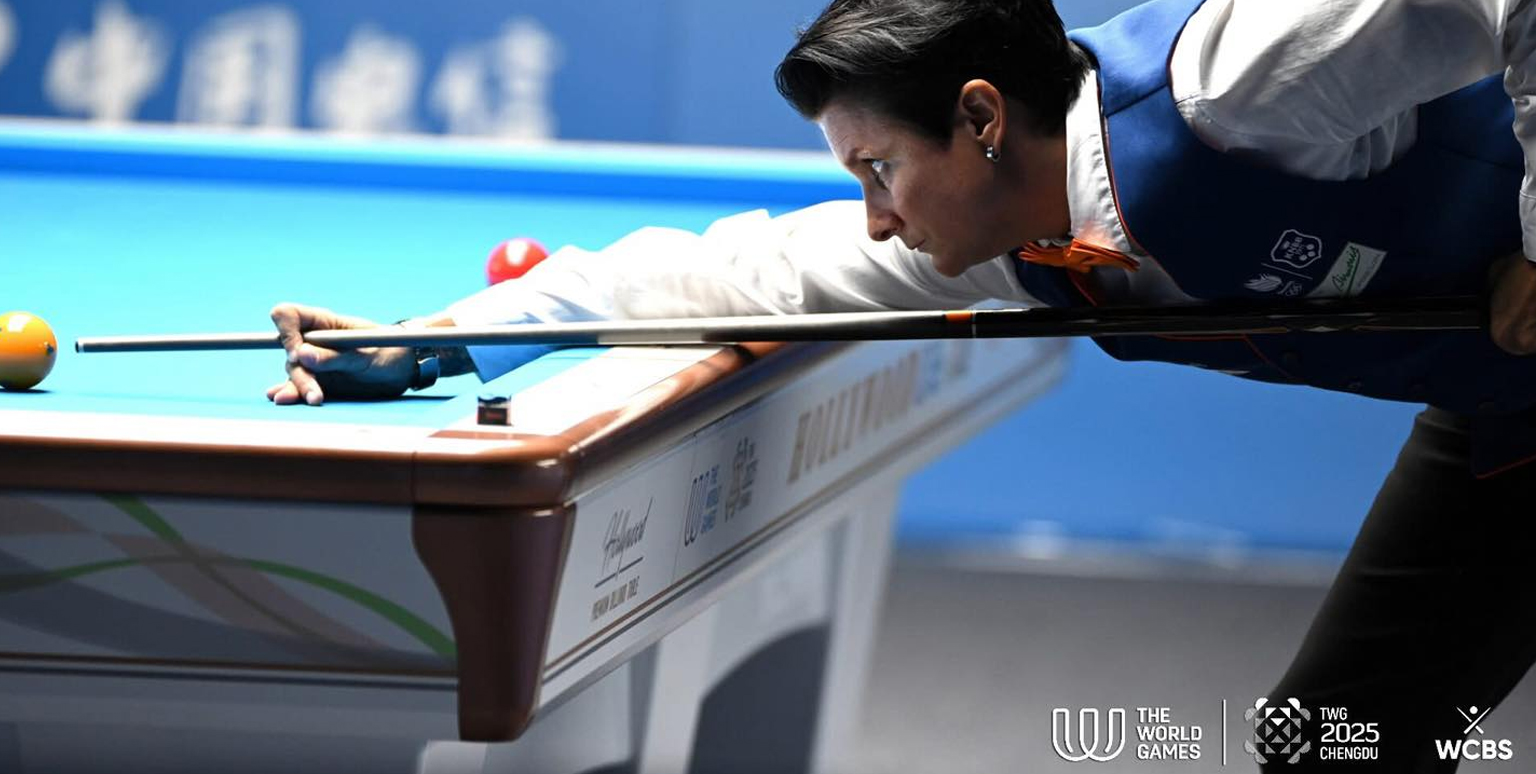
Pressure, Injury, and a Comeback: A Crucial Preparation
How did you qualify for the World Games to be among the eight players?
The first two of the European ranking were qualified. There was some pressure because when we learned about our sport being at the World Games, there were still 8 months to go before the end of the season. But I didn’t think about it a lot because I just always want to play good and I was already ahead by many points. I won the European championship and one Grand Prix so I finished first on the ranking. And Karina Jetten finished second. That’s why we both qualified for the World Games. And then they sent the best two from Asia, the best two from America. China and Africa didn’t have a player. And the 2024 world champion qualified too, Charlotte Sorensen.
Did you prepare yourself any differently for the World Games?
Yes, I trained more, making more hours at the billiard table. I played the European Team Cup in Porto in July. And after that, I had three weeks to prepare for the World Games. I was in my billiard room for about 20 hours a week, all by myself, so about 60 hours of training before the World Games.
Was it a difficult training?
It was summertime so I thought it would be hard. I have usually more free time at that time of the year. The weather is nice and the summer is the opportunity for me to level up my social life. To go out with friends, to be with my family, to do nice things outside. So I thought it would be hard but it wasn’t because I was so driven. I was only focused on billiards practice, trying to be at my best, and I was also feeling better. A little bit more fit. I knew I could win this tournament.
Were you already feeling super good at the beginning of your training?
No, I didn’t feel super good. I felt good because I won the European Grand Prix in May in Gandia. It made me feel I was on the right track again. Then in June I took some holidays and I trained for the Team Cup in Porto. And then I trained in July for China and at some point I started to feel super good. I even dared telling my wife one week before the World Games that I was going to win it.
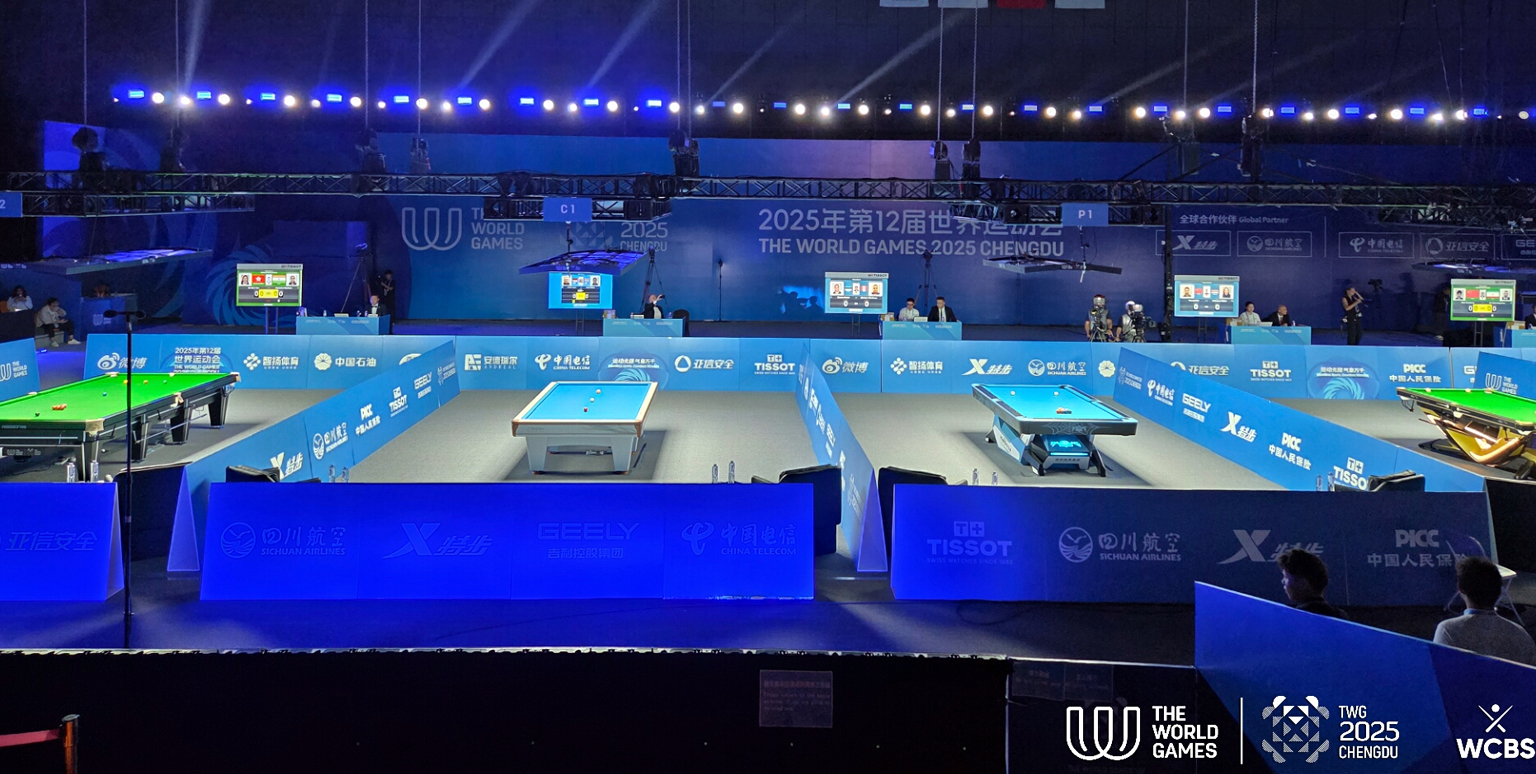
With so many expectations around you, and with you being one of the favourites for the title, how did you handle the pressure?
The field wasn’t that big because we were only eight players. People expect that you will win but it’s not always a sure thing. There are so many aspects that count at that sports level. Also, the World Games being in Chengdu takes you out of your comfort zone. China is far away. We may be jet lagged. We may have trouble sleeping. Some players have trouble eating the kind of food they have there. That was my first time ever in China so I didn’t know what to expect. It was also really hot outside. Around 40 degrees. And the feeling temperature was even higher. So everything has come together at that moment to stay cool and perform.
From who did you feel the most pressure? From yourself? From the media?
The pressure comes from myself but at that moment I am a professional and it doesn’t affect me at the billiard table. Journalists put pressure on you. People sitting at home watching the game, knowing me or think they know me, they like to give their opinion but I don’t really care about that. I think my biggest enemy or my biggest opponent is myself.
Do you usually follow the news before, during or after competitions?
No, I don’t. Neither the news nor social media. You have people who like to talk and journalists who like to write but it’s very easy when you’re at home sitting behind your computer or television to give your opinion about something or somebody. But in fact, they don’t know what is happening at that moment with that pressure, with that stress, with the atmosphere. They don’t know how you slept the night before and they don’t know how you feel.
How did you feel during the competition?
I felt good around the billiard table. The table was good. We were playing on a Simonis Cloth. I just tried not to think that I was playing such a big tournament. Of course, in the back of my mind, I knew how important the event was, but I just try to handle every game the same way. I think overall the general points I had against me was 10. So I made 125 points against 50. And the semi-final was crazy. I had to play Charlotte (Sorensen), the 2024 World Champion. But still I knew I had more experience than her. And I won 25 to 3. That was only 12 innings. It was really my best game on the right time at the right moment. This semi-final was like a final.
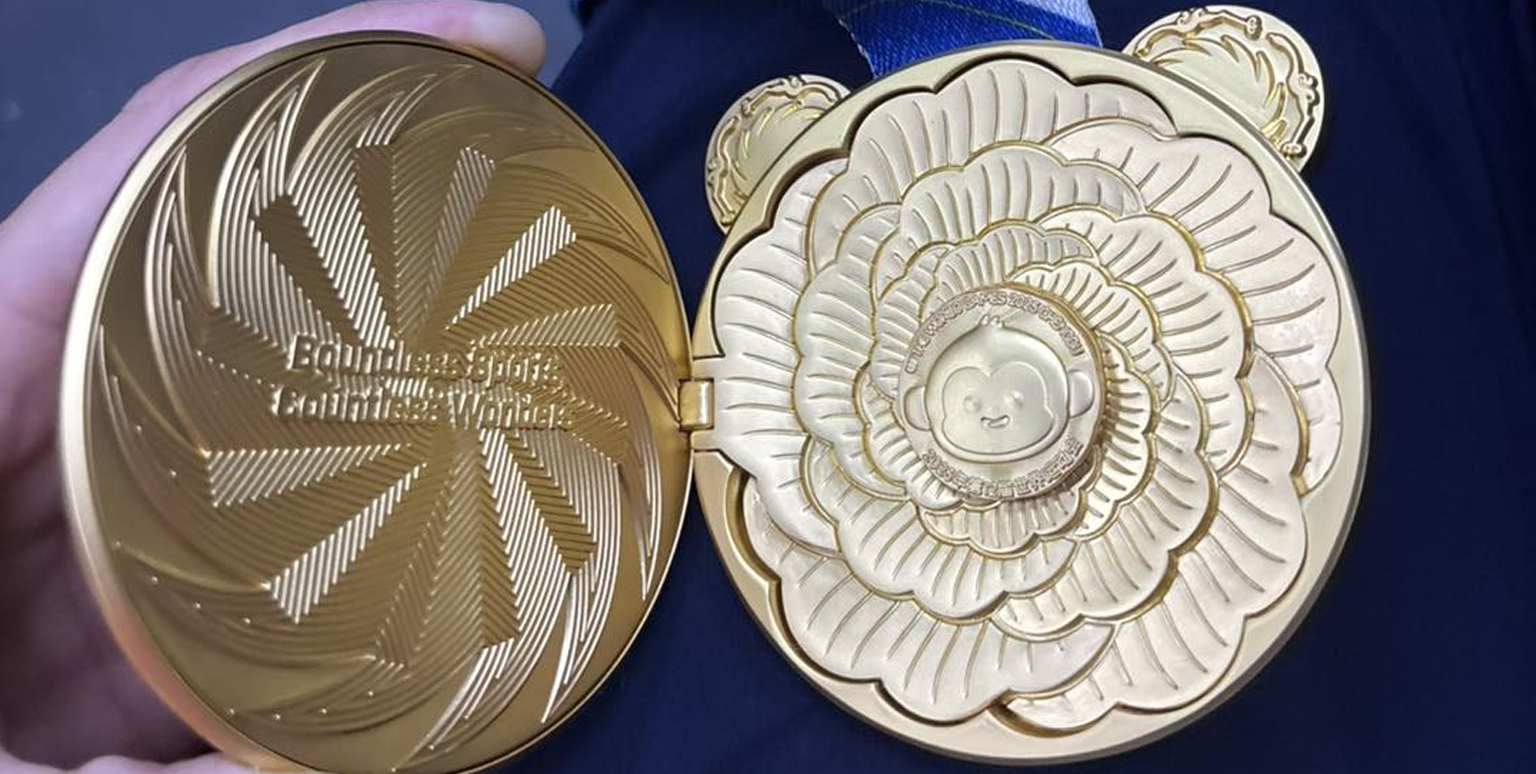
At what moment did you know for sure that the Gold Medal was going to be yours?
As of the first game, I was sure about my own ability to make it. Of course, it had been a hard year. A hard season. But I knew I was still at least one of the best players, if not the best player. And I was back on track again and I knew I could beat anyone. I knew it.
Was it a difficult season because of the injury and because of the doubts you might have had? Arriving at the tournament finals and not winning?
Yes. But at that moment, I couldn’t do any better, I just couldn’t do any better because I was injured. I started having mental problems because I was also frustrated. I wanted to give up a little bit. I was thinking about taking a break. To rest and to try get better for the World Games. But my relatives said you cannot give up because we are sure you can win again.
So I said OK I will go to Gandia for the European Grand Prix in May but I need some mental coaching because my mind is all messed up. And it worked and to win there really helped. And now I can look back at it and I can say yes, I lost some games because of my injury, not because I was not good enough.
Coming back to the World Games, were you surprised to see how good you performed there?
No. I crushed the competition and I was not surprised by it. And maybe it feels a little bit arrogant to say but I really felt so strong. I was so happy and relieved that I could train for 20 hours a week without having any problems with my shoulder. I was so focused and so driven and I was like yes, you have to make history again, come on, you can do it. I was so positive. I went there and everything went perfect. Jetlag was OK. I slept OK. Food was good. Everything went my way. And then I felt stronger and stronger and stronger. And when I beat Charlotte with such a big score in the semi-final, then I thought, okay, I’m going to win this. For sure.
The fact that you were staying all together with the other Dutch athletes, was it also comforting?
Yes, it was really nice. We were at the athletes’ village. All the athletes were there and it was the first time that we went under the flag of the Olympic Dutch team NL. It was really a nice because we had a physiotherapist there, a Chef de Maison coming to watch our games. Everything felt so professional, the feeling to be under the flag of the Dutch Olympic Federation. It gave us maybe that 1% extra to even perform better. It was the best experience ever for me in sports.
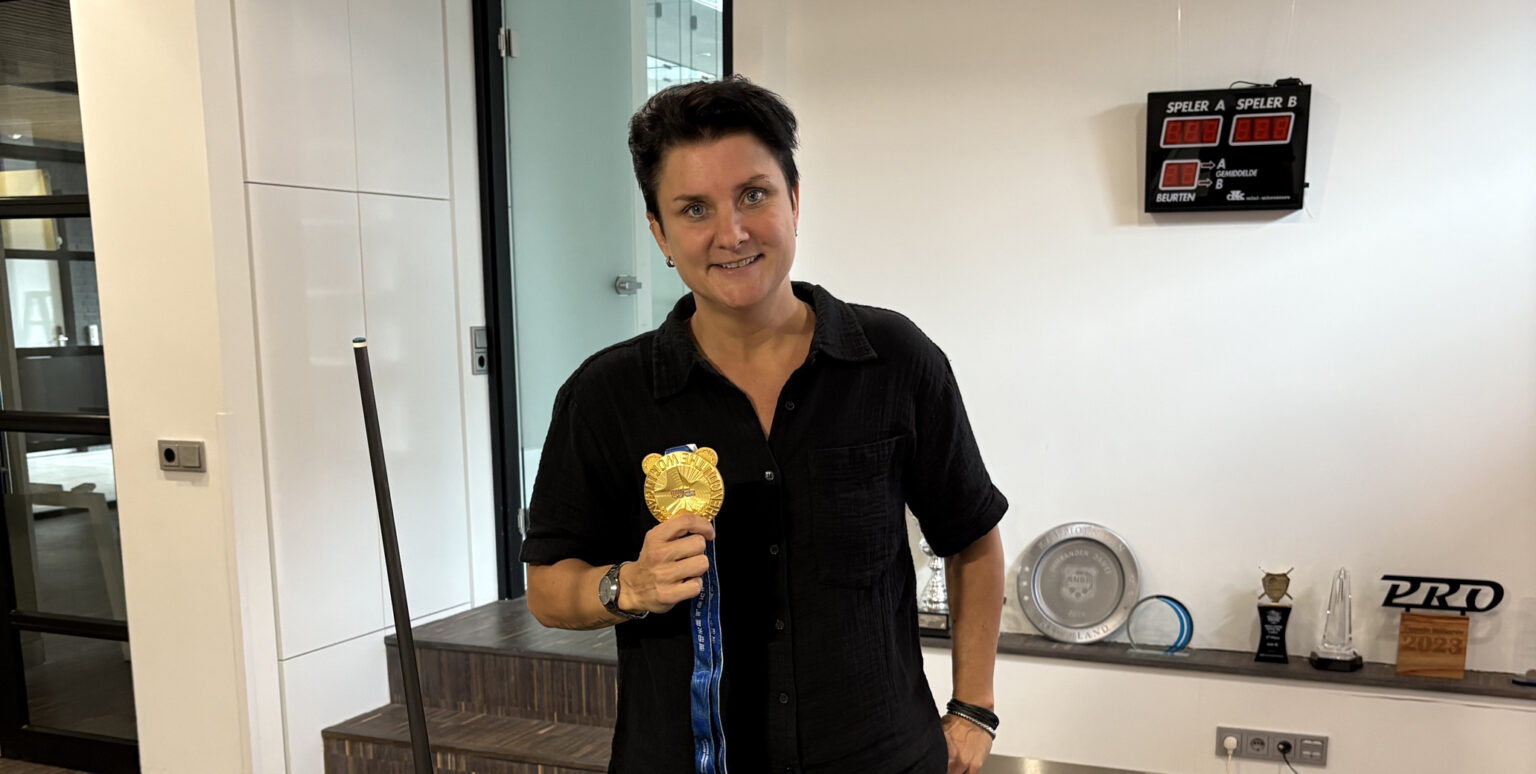
When you won the Gold Medal, it was incredible to see how happy you were. How did you feel at that moment?
All the emotions came out, the relief and the happiness after such a hard year. I think I was still crying two days after when I read all the messages because it was such a hard, tough season. And when you manage to get back like that, it feels so good. I really felt like I won something. When I win a Grand Prix, when I win a Dutch Championship, I come home with the medal, I put it in my drawer and the next day I’m doing the laundry. But here it is different. I won the first-ever World Games for women. The last title that I hadn’t claimed yet. All the emotions I had for the last year came out. And thinking about all the people who still believed in me and supported me. It was only happy tears. And when I think about it, I can tear up again, I can cry again. But only happy tears.
I think that many people don’t really know how deep down I was because I couldn’t do my work, my sport properly. Mentally, it was really a big fight. And I think many people don’t know because I talk about it now, maybe a lot, maybe too much, but I didn’t want to talk about it at the moment. Because I didn’t want to show my weaknesses. And I didn’t want to make my opponent stronger. So that’s why I didn’t talk about it. Now I can talk about it more easily. Of course, my wife knew, my father, people like Karina. She’s a very good friend, a colleague. My very good friends, they knew. But not many people outside of my bubble. They had no idea.
So, what’s next then?
I’m a professional. I’m really driven and I want win every tournament that I play. It’s in my blood. That’s why I do what I do. Because the feeling of winning is always amazing to me. And everything that happens now is like a bonus. I have like over 60 titles, over 35 official ones. When I was 18, I never thought that I would have all of this. I didn’t even think about being a professional billiard player, but I did become one. And now, yes, everything I win is like a bonus.
How do you keep this motivation now that you have claimed all the possible titles of your sport?
I just think it’s inside of me because I’m always very competitive with everything I do. Even when I play a board game, I’m competitive. And I’m really driven. Winning for a professional sportsman or sportswoman, it’s a very nice feeling. I heard about the pool player Kelly Fisher the other day. She said: “My father always said that they will never remember the second, they always remember the one who wins”. That’s so true. When you’re at the table, you just want to win. It’s just inside of you. That’s why you become a champion. Because if you don’t have the feeling, if you go somewhere and you think, oh, I’m happy with my third or my fourth spot, then it’s not so easy to become a champion. Because when you’re at the table, you need that feeling that you absolutely want to win.
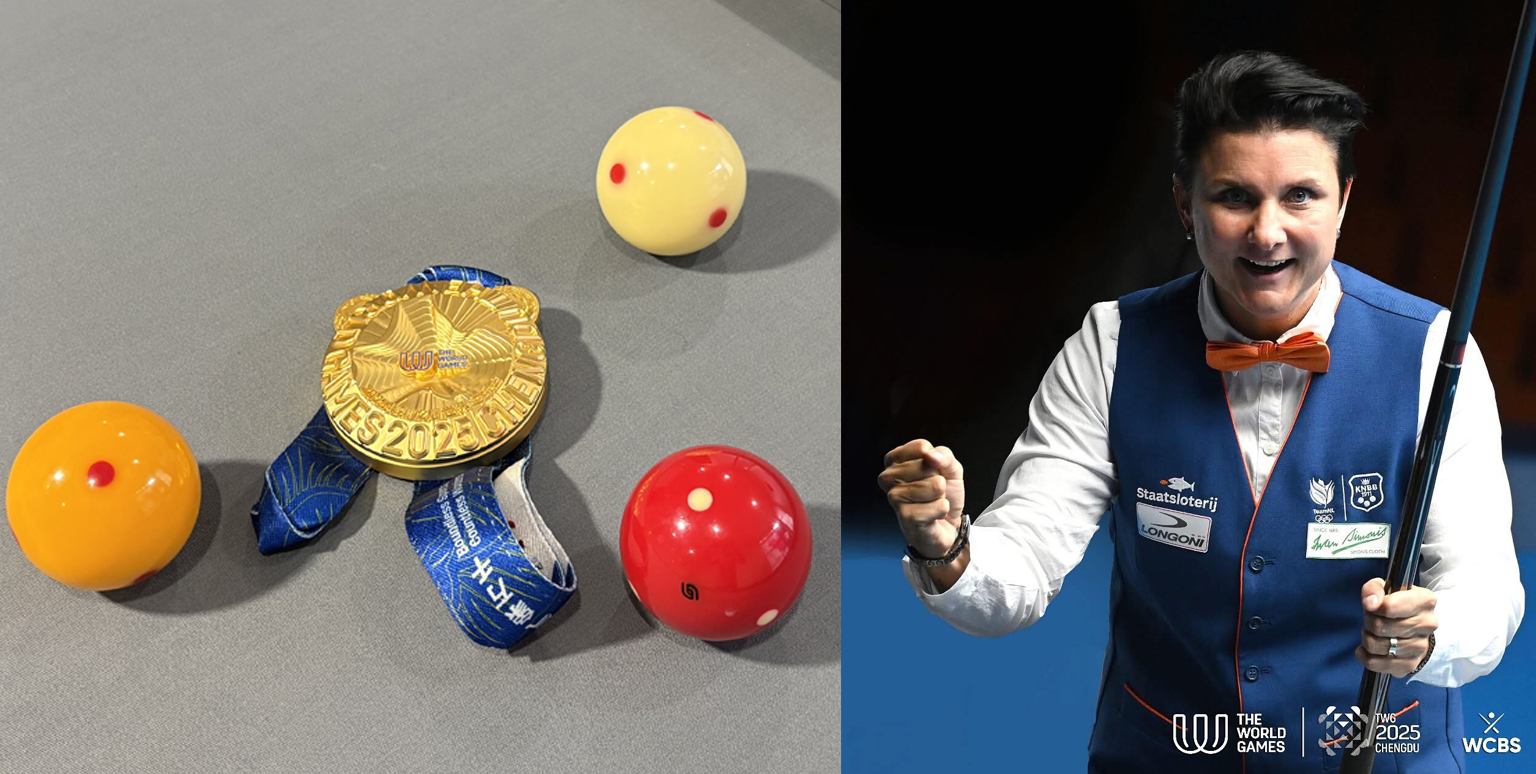
Inspiring a Generation and Growing Women’s Billiards
Do you think that since the World Games, the way the other players see you has changed?
They respect me. They have a lot of respect. I can feel it. But it’s the same for me. I always respect the other players. I hope to be an inspiration for some of the players. Because if they look at me and see what I have achieved, they can believe that if they really want the same, well, it’s possible. If you have the motivation and of course the love for the game of billiards, then it’s possible to win many tournaments.
The Netherlands is the strongest billiards country in Europe. Many women are willing to invest in being a better player. I hope I motivate them to become better.
Do you think the inspiration you create goes beyond the world of billiard?
I didn’t expect this question. I don’t know. I never look at it like that. I know people admire my loyalty and my fighting spirit, the way I invest myself in my billiards. There was one journalist who said one day: “she’s like the Aretha Franklin, the Lionel Messi, the Federer of billiards.” Of course, some people notice my achievements. What I can just say is that I hope I can be an inspiration for billiard players.
Do you think that this edition of the World Games will help the development of Ladies Carom 3-cushion?
I hope so, yes. I hope it will also inspire players to even gain up their billiards skills because the qualification is important. There were some interest in China. It’s totally new for them but there was a Chinese player already in the men’s competition. So it can become a bigger sport in China for instance. Another example is Egypt where they have for the first time a championship for women with 5 or 6 players. That’s a good thing.
For more information about Simonis cloths, visit https://iwansimonis.com/
For more information about Aramith balls, visit our Products section
